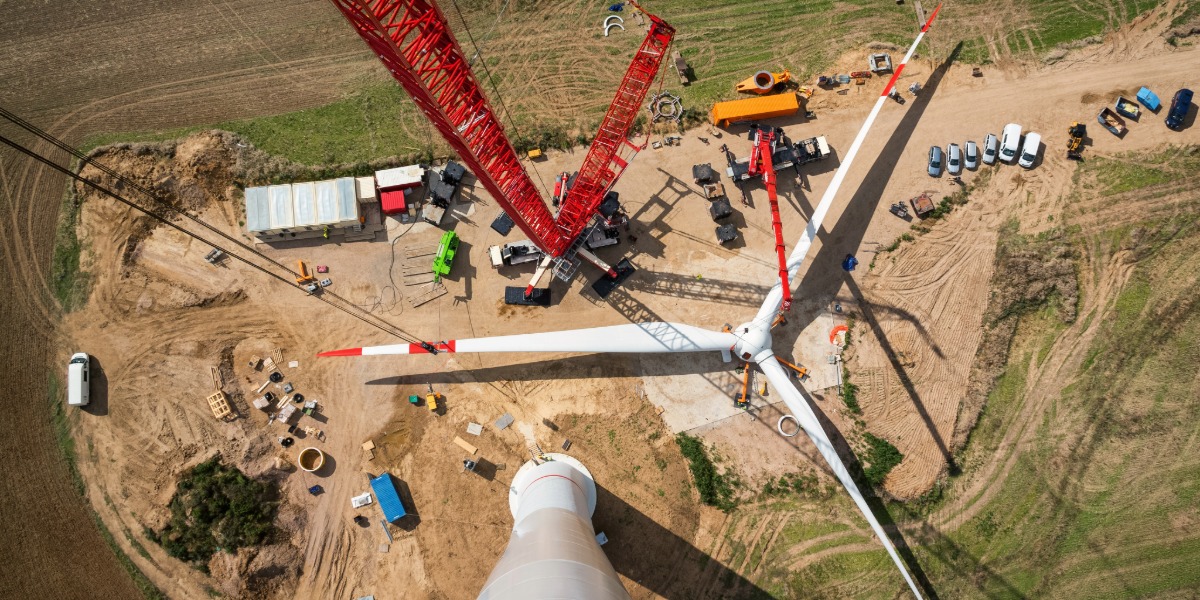The Clean Energy Council (CEC) has unveiled a national model for decommissioning large scale renewable energy projects, but it appears the industry body did not consult any farmer groups while developing the proposal it says is designed to “protect farmers”.
Developed with the Queensland Renewable Energy Council (QREC), the proposal sets out how financial security for removing wind and solar infrastructure at the end of a project’s life would be ring fenced through instruments such as bank guarantees, cash in escrow or surety bonds. Obligations and liabilities would transfer with project ownership so that, in the event a proponent defaults, the bond pays.
CEC chief executive Jackie Trad said the framework was responding to community concerns.
“Communities have told us they want assurance that landholders won’t be left carrying the cost of removing wind and solar infrastructure at the end of a project’s life and we’ve listened,” Ms Trad said.
“This framework provides those protections while keeping projects viable and investment-friendly to keep powering homes, economies and jobs.
“The risk of abandonment is extremely low. Renewable energy projects have a strong track record of meeting their end-of-life obligations. This framework adds an extra layer of protection to ensure landholders and communities are safeguarded.”
But the CEC, when pressed, could not name a single farmer group involved or consulted in the development of the proposal.
A CEC spokesperson said only that the framework “reflects an array of feedback received by the Clean Energy Council’s member companies from communities, including landholders and farmers hosting renewable energy infrastructure on their properties across Australia.”
A request to interview one of the farmers involved in that feedback was not responded to.
National Farmers Federation said the CEC contacted them only last week and a meeting has not yet been scheduled, however they would have preferred to be involved in the design phase.
NSW Farmers also confirmed they were not consulted on the model’s development, but welcomed the proposed legal protections to make developers pay for decommissioning.
“Energy developers should be required to pay a bond to cover the costs of decommissioning the projects they have built, so farmers aren’t left to pay the astronomical costs of cleaning up what’s left behind,” NSW Farmers Energy Taskforce chair Reg Kidd said.
“Many farmers were pressured into signing contracts that are unclear as to who has to remove this infrastructure at the end of its life, and if developers disappear or run out of cash, then that’s just another risk that could leave farmers footing the cleanup bill.
“If you put it up, you take it down. That’s just common sense, but right now, there’s no guarantee that’s what will happen.”
Consultation issues in Walcha flare again
The industry proposal has landed in the same week that the issue of inappropriate consultation has again flared as a major fault line in the New England Renewable Energy Zone. Consultation has been a key sticking point for landholders across the New England, particularly in Walcha, with poor consultation frequently cited as the main cause of the bitter division in the community.
A large crowd attended an EnergyCo community information session in Walcha on Tuesday about the revised proposed transmission route through the district, but a number of locals were frustrated that they could not put their questions directly to decision makers.
Prominent group Voice for Walcha posted a video of the exchange with EnergyCo people saying they couldn’t hold a town hall style meeting to social media, saying that EnergyCo was “the most poorly behaved developer” they have seen.
“The largest REZ in NSW, with 3 of the 4 hubs within 35km of Walcha, and EnergyCo don’t feel it’s necessary to answer questions from the Walcha community.
“This is a disgraceful lack of respect from the most poorly behaved developer we have seen in our LGA. And that’s saying something.
“With no genuine financial interest in wind projects, there is no justification for central south hub, and no justification for transmission through the Walcha LGA,” the post said.
In a statement, an EnergyCo spokesperson said the session was the first of 12.
“The event had a strong turnout, and the New England REZ project team had detailed and productive discussions with attendees, including landowners,” a spokesperson said.
“Following feedback from our communities, EnergyCo will have senior leaders available at the future sessions in Walcha and Gundy to provide a project update and opportunity to ask the EnergyCo leaders questions.”
“EnergyCo recognises the important role that communities, councils and landowners have in helping the project refine its study corridor, and all feedback will be considered.”
This story was updated to include confirmation that NFF had not been consulted.
Got something you want to say about this story? Have your say on our opinion and comment hub, New England Times Engage

